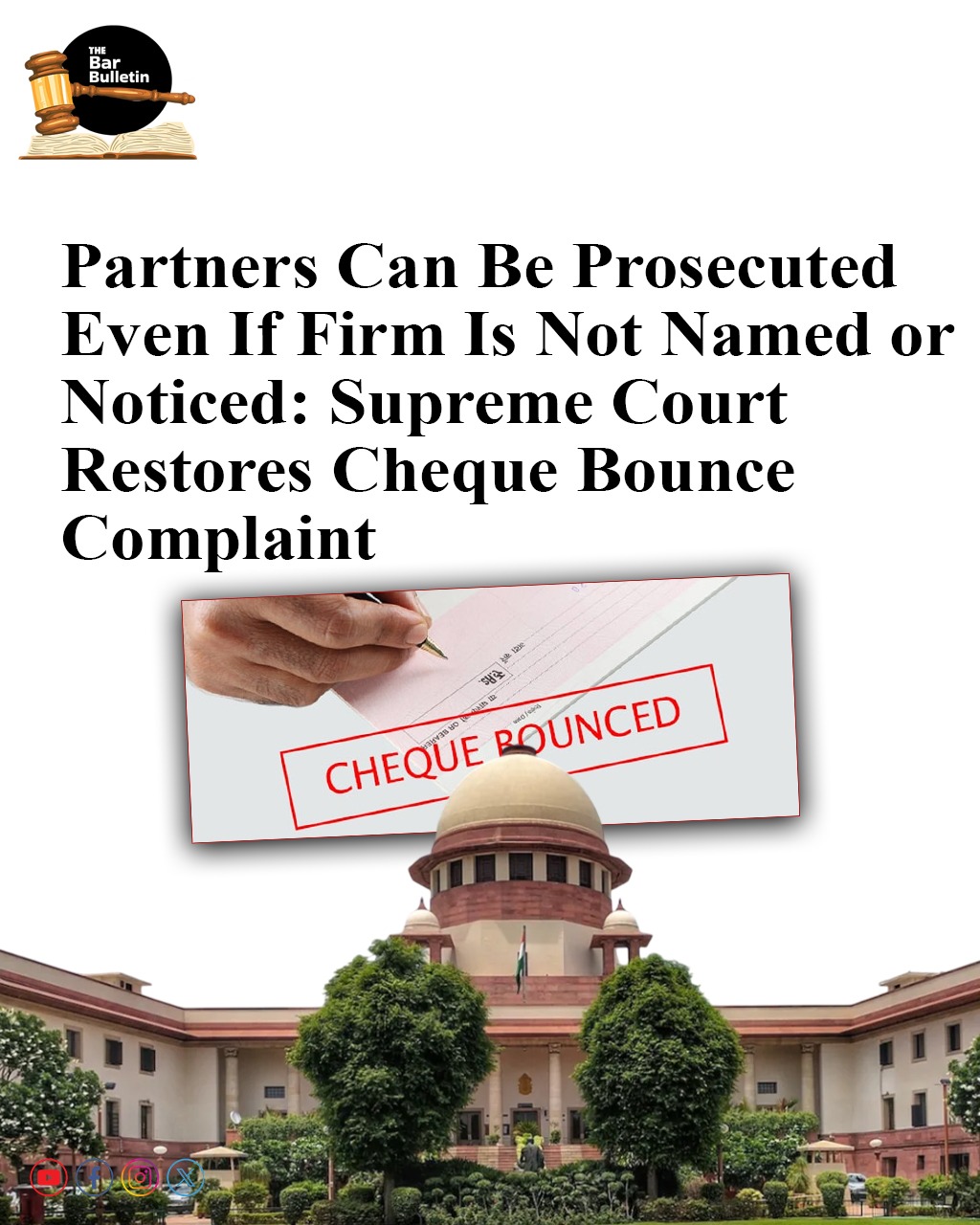The Supreme Court has recently ruled that a complaint under Section 138 read with Section 141 of the Negotiable Instruments Act, 1881 (NI Act), is maintainable against the partners of a firm, and both partners were jointly and severally liable in case of its dishonour, when the dishonoured cheque was issued from the firm’s account and signed by one of its partners, even when the firm was neither served with a statutory notice nor arraigned as an accused.
While emphasizing that the rules of vicarious liability applicable to corporate directors cannot be mechanically applied to partners of a firm, the Division Bench comprising Justice B.V. Nagarathna and Justice Satish Chandra Sharma explained that a company, incorporated under the Companies Act, is a distinct legal entity with a separate juristic personality, capable of owning property, suing, and being sued in its name. Although in the case of Aneeta Hada v. Godfather Travels & Tours Pvt. Ltd. (2012) 5 SCC 661, it was held that arraigning the company is a sine qua non for prosecuting its directors under Section 141, the Bench pointed that a partnership firm is not a juristic entity, and the partners are jointly and severally liable under the Indian Partnership Act, and therefore, there is no need to apply the doctrine of vicarious liability.
The appeal arose from a cheque dishonour complaint filed under Section 138 read with Section 142 of the NI Act against the respondents who are partners in a registered partnership firm, for the default in repayment of a loan of Rs. 21 lacs, which was advanced by the appellant. Essentially, the cheque, which was issued on behalf of the firm, though signed solely by Respondent No.1, when presented, the same was dishonoured due to the firm’s account being frozen. The complaint filed by the appellant against the two individual partners came to be quashed by the Madras High Court on the ground that neither any notice was sent to the firm nor was the firm made an accused.
When the matter reached the Supreme Court, on the issue of non-service of notice to the firm and its non-impleadment rendering the complaint as defective, it was held that a partnership firm has no separate legal existence from its partners, and it is merely a collective name for all its partners. Therefore, issuing notice to both partners satisfies the statutory requirement under Section 138. Furthermore, the firm’s acts, contracts, and obligations are those of its partners acting collectively, and when a partner signs a cheque in the name of the firm, that act is legally attributable to the individual partners themselves. In the present case, although the cheque was drawn in the firm’s name and signed by only one partner, both partners were jointly and severally liable because they represented the firm.
Referring to Section 141, which extends that liability to persons who were in charge of and responsible to a company or firm for its business at the relevant time, the Apex Court clarified that the Explanation to Section 141 explicitly includes “a firm” in the definition of “company” and a “partner” in the definition of “director”, however, these extensions are only legal fictions meant to bring firms within the procedural ambit of Section 141. Consequently, failure to issue notice to the firm does not render the complaint invalid, so long as the partners are made parties and served with the statutory notice. The Court decisively rejected the notion that partners enjoy any form of immunity if the firm is not separately named or noticed.
Appearances:
Appellant: AOR Sabarish Subramanian, a/w Advocates C.B. Gururaj, Vishnu Unnikrishnan
Respondent: Senior Advocate S. Nagamuthu, AOR M.P. Parthiban, and Advocates Bilal Mansoor, Shreyas Kaushal, S. Geyolin Selvam, Alagiri K, and P.V.K. Deivendran



